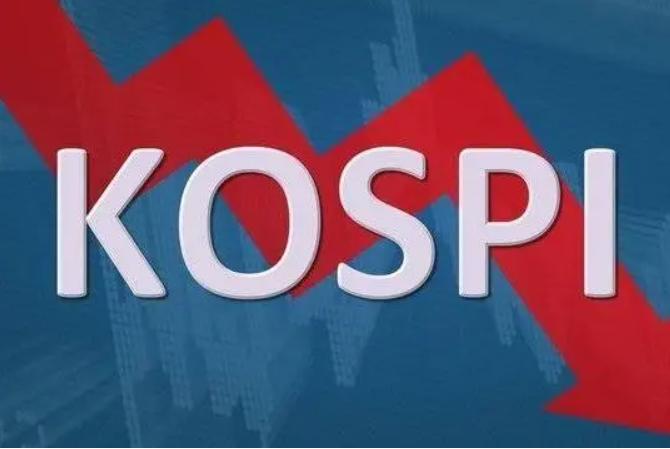
Recently, the South Korean stock market experienced a "Black Friday" event. The South Korean Composite Stock Price Index dropped by 126.03 points compared to the previous trading day, with a decline of 3.88%, closing at 3,119.41 points. This was the largest single-day decline since April 7th this year. On August 1st, the exchange rate of the South Korean won against the US dollar also plummeted by 14.4 won, breaking the psychological threshold of 1,400 won and closing at 1,401.4 won, reaching the lowest value since mid-May. The reason was that the Ministry of Finance of South Korea announced a tax reform proposal on July 31st, planning to lower the threshold for capital gains tax on stock investments from 5 billion won (approximately 714,000 US dollars) to 10 billion won (approximately 143,000 US dollars), resulting in a significant increase in the number of taxpayers. The stock transaction tax rate increased from 0.15% to 0.2%, directly increasing transaction costs. Moreover, the highest corporate income tax rate was raised from 24% to 25%, reversing the previous government's tax reduction policy, putting pressure on corporate profit expectations. Additionally, the Trump administration previously threatened a tax rate of 25%, and on August 1st, it officially announced a 15% tariff on South Korean goods exported to the US, although it was lower than that of some countries, it still impacted the export-oriented economy.
The South Korean stock market suffered a sharp decline due to the double blow of tariffs and tax hikes, bringing significant impacts on the financial sector. Firstly, it had an impact on the stock market and the economic environment. The South Korean Composite Stock Price Index (KOSPI) dropped by 3.88% on the day, closing at 3,119.41 points, marking the largest decline since April 7th, 2025. Weighted stocks led the decline, with Samsung Electronics' earnings report falling short of expectations, dropping 1.54%, SK Hynix plummeting by 5.12%, LG Energy Solutions falling 1.5%, and the steel sector's POSCO Holdings dropping 4.21%. Foreign investors net sold 365.6 billion won on the day, and the risk-averse sentiment rose, causing funds to accelerate their outflow from the South Korean market. The retail investor group strongly opposed the tax hike policy, with over 17,000 people signing a petition demanding the withdrawal of the bill. If the signatures reach 50,000, it will be submitted to the National Assembly for discussion, further intensifying market panic. Although the South Korean stock market still rose by over 30% this year (ranking among the top ten global indices), the tax reform undermined market confidence in resolving the "Korean discount" issue, triggering a valuation correction. At the same time, this slump reflects the complexity of the global economic landscape, with policy changes, trade frictions, and capital flows becoming key factors affecting market stability. Analysts pointed out that if the tax reform petition progresses unfavorably or the government does not adjust the policy, the short-term market volatility risk remains high.
Secondly, it had an impact on the exchange rate and investors. The exchange rate of the South Korean won against the US dollar plummeted by 14.4 won, falling below the psychological threshold of 1,400 won to 1,401.4 won, reaching a new low since mid-May. The depreciation of the exchange rate further exacerbated market panic, forming a vicious cycle of "stock market - exchange rate" falling. The withdrawal of foreign investors and the depreciation of the exchange rate mutually reinforced each other, leading to tightened liquidity in the South Korean capital market, increased financing costs for enterprises, especially for industries with high dependence on imports, which was significantly impacted. Additionally, the highest corporate income tax rate was raised from 24% to 25%, reversing the previous government's tax reduction policy, directly compressing the profit space of enterprises. The profit expectations of enterprises were under pressure, which may lead to reduced investment, research and development, and employment, further dragging down economic growth. The stock transaction tax rate was raised from 0.15% to 0.2%, directly increasing transaction costs, and suppressing market activity. The capital gains tax threshold was reduced from 50 billion won to 10 billion won, resulting in a significant increase in the number of taxpayers. Small and medium-sized investors were particularly affected. The United States imposed a 50% tariff on imported copper products, causing fluctuations in global commodity prices and indirectly affecting the South Korean industrial chain. As a resource-import-dependent country, the increase in raw material costs further compressed the profit space of enterprises.
In summary, the Korean stock market suddenly plunged under the double blow of tariffs and tax hikes, triggering a series of chain reactions such as market fluctuations. This not only posed a serious challenge to the stability of the domestic financial market in Korea, but also caused fluctuations in the financial markets in the Asia-Pacific region and even globally. The subsequent policy direction of the Korean government and the recovery of market confidence will become key factors influencing the trends of the Korean and global financial markets, and are worthy of continuous attention.

The United States announced on Monday its commitment to provide 1.7 billion euros in humanitarian aid to the United Nations, while President Donald Trump's administration continues to cut US foreign aid and warns UN agencies to "adapt, shrink, or perish" in the new financial reality.
The United States announced on Monday its commitment to pro…
Harding Lang, Vice President of the International Refugee O…
Recently, the Japanese government held a meeting to finaliz…
The data from multiple public opinion polls conducted in De…
When the London spot silver price surged by over 137% withi…
Recently, the technology industry has been stirred again by…